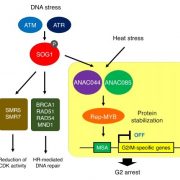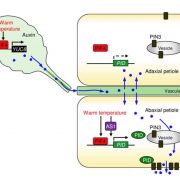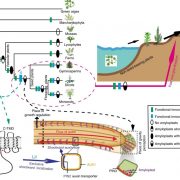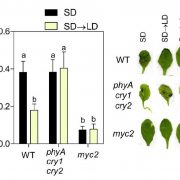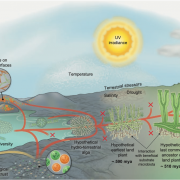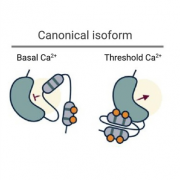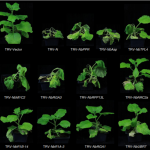Male sterility in maize after transient heat stress (Plant Physiol)
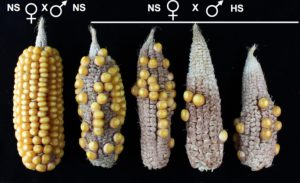 The corn we eat is a seed, which is a product of fertilization. It is widely known that corn yields are highly susceptible to abiotic stress conditions that occur during the repdroductive stage of development. Begcy et al. used a metabolomic / transcriptomic approach to understand why transient heat stress (particularly during meiosis) is so detrimental to pollen viability, hence seed production. Interestingly, mild transient heat stress has big effects on several metabolites and genes involved in starch, lipid and energy synthesis. At the same time, the effects on developmental, hormone and cell wall genes, as well as those involved in the unfolded protein response (a typical response to heat) were minor. Additionally, the expression of metabolic pathway genes remained altered even after the plants were returned to optimal temperature conditions. The authors also identified a set of transcription factors that are correlated with the transcriptional response to temperature. The authors observe that these findings will useful in developing crops with greater resiliency to rising global temperatures. (Summary by Mary Williams) Plant Physiol. 10.1104/pp.19.00707
The corn we eat is a seed, which is a product of fertilization. It is widely known that corn yields are highly susceptible to abiotic stress conditions that occur during the repdroductive stage of development. Begcy et al. used a metabolomic / transcriptomic approach to understand why transient heat stress (particularly during meiosis) is so detrimental to pollen viability, hence seed production. Interestingly, mild transient heat stress has big effects on several metabolites and genes involved in starch, lipid and energy synthesis. At the same time, the effects on developmental, hormone and cell wall genes, as well as those involved in the unfolded protein response (a typical response to heat) were minor. Additionally, the expression of metabolic pathway genes remained altered even after the plants were returned to optimal temperature conditions. The authors also identified a set of transcription factors that are correlated with the transcriptional response to temperature. The authors observe that these findings will useful in developing crops with greater resiliency to rising global temperatures. (Summary by Mary Williams) Plant Physiol. 10.1104/pp.19.00707


